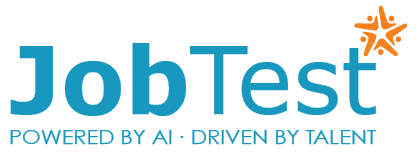
Integrity
Integrity Test is a tool designed to measure the level of honesty, compliance with rules and ethical behavior of candidates or employees in the work environment. At the same time, the assessment helps determine the level of individual suitability with the corporate culture through personality questions and simulated hypothetical situations, thereby reflecting the sense of responsibility as well as the level of commitment at work.
- Number of questions:
- Time to complete:
- Target audience:
- Assessment content: Measures the level of honesty, compliance with rules and ethical behavior of candidates or employees in the working environment. At the same time, the assessment helps determine the level of individual suitability with the corporate culture through personality questions and simulated hypothetical situations, thereby reflecting the sense of responsibility as well as the level of commitment to work.
- Assessment purpose:
Competency Assessment List
-
{{ !_.isEmpty(item.question_packages) ? item.question_packages.length : 0 }}
-
{{ _.isNumber(Number(item.duration)) ? item.duration : 0 }}
-
{{ _.isNumber(item.tested) ? item.tested : 0 | money }}
{{ item.price | money }} ₫
Free
COMPONENTS OF THE ASSESSMENT
- Trustworthiness: Assesses the extent to which a person can be trusted to act honestly, confidentially, and consistently in their words and actions.
- Accountability: Assesses the ability and willingness to take responsibility for one's actions, decisions, and outcomes — both good and bad — without blaming others.
- Rule Compliance: Assesses the extent to which an individual understands, respects, and consistently adheres to the organization's rules, procedures, and legal standards.
- Ethics and Values: Assesses the ability to evaluate situations involving moral ambiguity and make choices that are consistent with the organization's ethical standards and values.
- Honesty: Assesses the quality of being honest and transparent in communication and actions, even when it may be inconvenient or not beneficial to the individual.
APPLICATIONS
- This test is often used in the hiring process to screen out candidates who may pose ethical risks or have a tendency toward counterproductive behavior.
- The test helps assess a candidate's ability to follow rules and act responsibly under pressure.
- Organizations can use the test to assess current employees and identify cultural risks, ethical blind spots, or training needs. This can help align employee behavior with company values.
- Determine whether an employee’s issue stems from a lack of knowledge or from a deeper misalignment with the organization’s values and culture
Relevant for Industries
Most often tested categories
- Logical Reasoning Test
- Numerical Reasoning Test
- Verbal Reasoning Test
- Abstract Reasoning Test
- Diagrammatic Reasoning Test
- Data / Error Checking Test
- Faults Diagnosis Test
- Mechanical Reasoning Test
- Critical Reasoning Test
- Situational Judgment Test (SJT)
- Psychometric Test
- Tư Duy Không Gian
- Post-training Test
- English Reading Test
- Situational Judgement Test (SJT)
- DISC Awareness
- English Skill
- GOLD 2024 - English Test
- Product Knowledge
- English Listening Test
- Numerical Reasoning
- Verbal Reasoning
- Non-verbal Reasoning
- Situational Judgement
- Critical Thinking
- Problem Solving
- Job & Income
- Managers, Colleagues
- Company
- EVP
- Integrity









